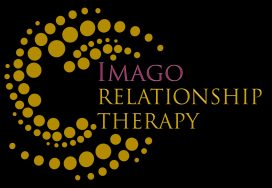In the previous blog I began a conversation that addresses the complexity of the relational dynamics that lead to affairs, one that I believe is caring and compassionate for everybody involved.
I do not condone infidelity, deception or betrayal of any flavor. Infidelity is painful and messy; however, as a culture, I think we are quick to oversimplify, judge, and polarize it, which doesn’t help the couples who are trying to deal with it, whether they are looking to stay together or go their separate ways.
The number of women having affairs has increased 30%, while the statistics on men are relatively the same. In light of this, I think a different dialogue about infidelity is crucial, a dialogue that enables the couple to heal, get stronger and more resilient, and grow from it.
We can learn a lot about trust by understanding infidelity, and a lot about fidelity by understanding infidelity.
Why is infidelity endemic, even in functional relationships — where two people clearly adore each other, their children are incredible and they still laugh at each other’s jokes?
We cannot see it solely as an act of betrayal. But we can agree on this: if there has been infidelity, it means the old system that held the marriage together is gone, and in many cases those marriages needed to be shaken up.
Infidelity can be an expression of a deep longing … a loss … a yearning for emotional connection, for newness, for freedom, for autonomy … for sexual intensity.
I talked with Nancy, who is 42 and married with two sons ages six and ten. She told me, “My short-lived affair revived the lost sense of autonomy for a while. My husband and I had just come out of a physically demanding time of parenting. I was looking after two toddlers and it felt like everything I did was to serve three other people. Sex with my husband was great, but still it also felt like I was doing it for the greater good. Sex with the other man was unremarkable. I just wanted something for me. It was convenient because he lived abroad and we met occasionally if I was there for work. But then he got a job near us and it was as if I woke up from a dream! It was too real. I was still happy in my marriage. I ended the affair when I saw that that happiness was being threatened.”
The exhilaration and passion of infidelity isn’t always so much the new lover; it can be an injection of hope and promise of a new self that the person experiences in terms of growth, exploration and transformation. It can also be a way of reducing pain and built up emotional pressure, aliveness and … a form of self-discovery.
Couples healing from the aftermath of an affair, in my experience, very rarely want to hurt or leave their partners. They want to leave the person they have become in the marriage. They are looking to find another version of themselves. Just think about that for a minute.
One of the questions I ask is, “Who are you, or who do you allow yourself to be with the other partner, that you are not in your marriage/relationship? If you are someone who has always tried to do the right thing, live responsibly, be loyal, what does the entitlement, defiance and rebellion of an affair mean to you? What parts of yourself have you lost or abandoned in your life that you may be trying to reclaim?”
Each one of us has multiple selves, but in our most intimate, long-term relationships, there’s a tendency to moderate our complexity.
Infidelity can also be a “symptom” that points to some underlying and/or preexisting condition in the relationship. For folks I’ve spoken with, it’s true; someone was in deep pain or the marriage evolved in a troublesome way.
According to Imago theory and therapy, infidelity is driven by an unconscious desire to recapture the lost parts of oneself. It can be an attempt to bring back strength, vitality and the promise of life in the face of loss, illness and tragedy.
Alternatively, infidelity is a powerful and destructive indictment of the relationship. But the error isn’t always in the couple’s relationship; the damage goes back into childhood.
For example, let’s say a spouse’s mother or father was chronically unfaithful. This can have an impact that is less about sex and more about communication and problem solving in the relationship. Happy parents give their children the message that problems can be talked about and resolved.
But when parents are unhappy, they can give children the message that problems can never be solved. So instead of communicating, “We haven’t had sex for four months and that’s a problem for me,” the problem, the person’s desire and need for sex is buried, tension and conflict increase and the problem is “solved” by one partner going off and having sex with someone else.
Any one of us could have an affair. It’s just that some of us do and some of us don’t.
After infidelity has been discovered, it feels so egregious that the couple just can’t see a way to come back. Sometimes, people will find that they have surprisingly healing conversations with one another with a level of honesty they haven’t had in years. A level of honesty, vulnerability and openness they didn’t know they were capable of.
Sometimes, couples have intense, passionate sex after revealing an affair, and they don’t understand why — there’s been a combustible sexual awakening — which wasn’t something that they typically felt like they could talk about.
It’s a spectrum, and there is no right or wrong.
Where do we go next?
Eventually the individuals determine where to go next, whether separately or together. Infidelity will ultimately redesign the relationship, and every relationship will define what the infidelity meant. The narrative of the affair may be written by one person; however, the narrative of the new relationship is written by both. It’s important for both people to exercise autonomy to re-author their relationship — and for other folks to also recognize this.
We can learn a lot from infidelity without going through it. There is a lot of intensity, imagination, creativity, attention and focus that goes into having an affair. What if we could bring a little bit of that into our marriages? Maybe we would do much better.
Love in Connection,
Paula M. Smith
Certified Imago Therapist | Marriage Scholar | Couples Transformationist | Personal Growth Teacher
401–782–7899
paulasmith@post.harvard.edu







